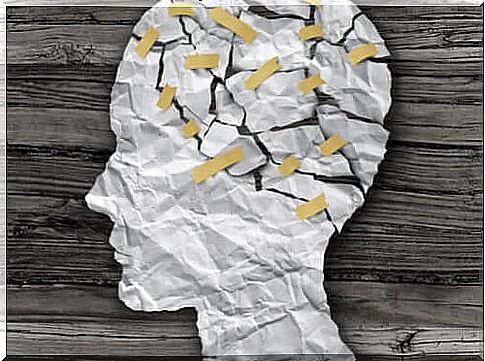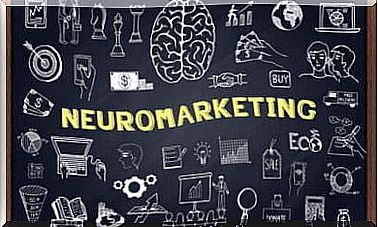Cognitive Deficits In Schizophrenia: Causes And Effects

Cognitive deficits in schizophrenia can be severe and are associated with functional problems. On the other hand, the causes of these deficits are not clear, and do not compose a specific neuropsychological profile.
It should be noted that these deficits do not seem to be the product of the positive symptoms (hallucinations, thought disorders, delusional ideas, among others) that accompany the disorder.
To date, it has not been proven that there is a direct relationship between the severity of hallucinations or delusions and the severity of cognitive deficits.
In fact, cognitive alterations – attention, orientation, memory, etc. – are usually detected before the actual psychotic symptoms start, constituting the framework that triggers the warning signs.
On the other hand, it is worth noting that some cognitive changes, such as attention and working memory, are present and remain stable after a psychotic episode.
Some cases where patients were discharged after a long period of hospitalization showed that negative symptoms (related to the way the person behaves socially) may even improve while cognitive disorders remain or even worsen. These are two relatively independent aspects.
Cognitive changes and negative symptoms are closely related; on the other hand, due to the amount of interactions that can occur, it is not an easy association to analyze.
In general, the loss of interests, activities and disconnection from a project affect each person’s cognitive abilities. Therefore, the combination of these variables can influence the prognosis more significantly.

Cognitive deficits in schizophrenia: effects
Cognitive changes in schizophrenia syndrome can be severe. They limit personal autonomy and are associated with a functional loss in activities of daily living:
- They can affect social functioning due to deficits in declarative memory and sustained attention span. This is an obstacle to having conversations and relating to other people.
- They can affect occupational functioning through deficits in executive functions, declarative memory, working memory and sustained attention. The ability to concentrate, retain information and learn new activities is compromised.
- They can affect the ability to live independently due to deficits in executive functions, declarative memory and working memory. They focus on the ability to perform everyday tasks, such as cooking, shopping, maintaining hygiene habits, among others.
Cognitive deficits in schizophrenia: causes
It is not known what causes cognitive deficits in schizophrenia. Researchers have even considered the possibility that these cognitive disorders are a consequence of treatment with antipsychotics. However, there is no data to support this hypothesis.
Conventional antipsychotics have shown a positive, albeit moderate, effect on some basic psychological processes such as attention. The downside is that they can affect motor dexterity.
Therefore, to date, it is not known whether treatment with antipsychotics causes or resolves cognitive deficits in people with schizophrenia. It is necessary to deepen the theme and conduct further studies to understand it.
In 2018, researchers at the University of the Basque Country UPV/EHU published a study that evaluated the effectiveness of various drugs to delay cognitive deterioration in Alzheimer’s patients. To do this, we evaluated the significant improvements in cognitive changes that patients with schizophrenia showed.
Through an analysis of nine clinical trials conducted around the world, the researchers determined a series of methodological improvements for the study of drugs that ensure these patients’ recovery work.

Non-pharmacological treatments
One of the main problems is that medications are useful for treating positive symptoms. On the other hand, they are not usually very successful in the face of negative symptoms. However, these can be treated with other types of non-pharmacological therapies.
For example, to treat attention problems, occupational therapy can help the patient improve focused attention and concentration through stimulation exercises, concentration, and crafts.
It is important and essential that any type of treatment, whether pharmacological or not, adapts to the personal needs of each patient.
It should not be forgotten that, despite some anatomical, neurochemical and functional changes, it is so far impossible to establish a general neuropsychological profile for patients suffering from schizophrenia due to the heterogeneity of the disorder.









